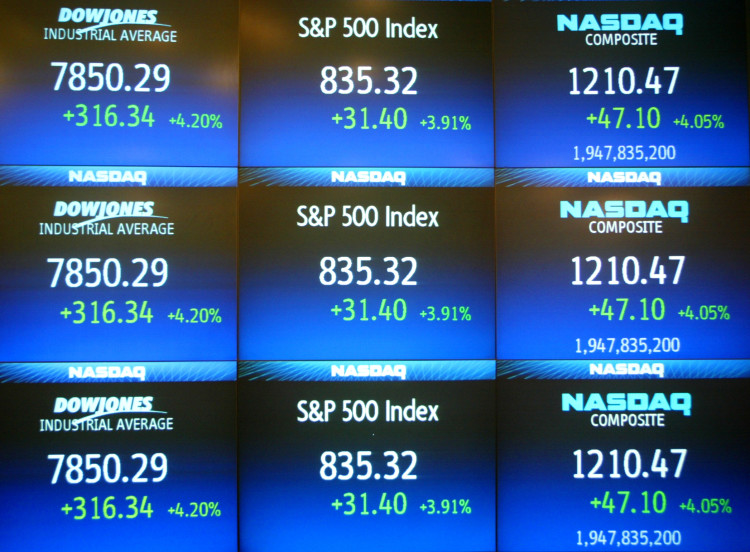How Expensive Are Stocks? There’s No Fast Answer: Barry Ritholtz

published Mar 3rd 2017, 1:19 pm, by Barry Ritholtz
(Bloomberg View) —
Here’s an interesting analysis that should not be overlooked. Charles Lieberman here at Bloomberg View looks at whether the stock market is overvalued. He concludes it is not, but it’s his analysis, based upon a dividend discount model, that I want to point out. It is a much more nuanced case for moderate stock valuations than the Wall Street Journal’s recent argument that, in the wake of oil’s collapse, stocks are cheap.
As Lieberman observes of the price-earnings ratio:
Since 1954, the S&P 500 P/E trailing multiple has averaged about 16.6. But this encompasses very high P/E periods, such as the 1950s and the 1990s and exceptionally low P/E periods, such as the 1970s.
Rather than merely use the median, why not try to find similar periods so as to make a better comparison? He concludes:
If we focus on those periods when inflation and interest rates were low, as they are today, the implied equilibrium P/E multiple is well above the historical average, but also above the prevailing multiple in today’s market.
Thus, adding in those additional variables — interest rates and inflation — provides context that might change how you value equities.
There are many ways to value stocks, none of which are perfect. We reviewed a list of 15 such measures a couple of years ago, via a report from quant strategist Savita Subramanian of Merrill Lynch. The conclusion then was that U.S. stocks were somewhat pricey, but not terribly so.
Lieberman’s observations reminded me of a few simple rules I have accumulated about valuations. It is too easy to forget these:
Ritholtz’s Rules of Valuations
Overvalued stocks and markets can continue to get overvalued, often for a long time. (Think back to 1996, when so many strategists became cautious. Markets powered higher for four more years.) Cheap stocks can get even cheaper. Ratios such as price to earnings or price to book are merely pictures; what you need to consider is the full context — the film version. Fair value is an abstract concept, which stocks just wave hello to as they career past on their way toward becoming dirt cheap or wildly overvalued. However, I am hard-pressed to recall an extended period when stocks stayed at fair value for any appreciable period of time. Using a single variable to identify whether a stock is cheap or expensive so radically oversimplifies the concept of valuation as to be worthless. Markets are simply too complex to be adequately reduced to one variable that can tell you whether to buy or sell. There are many variables to consider, as we discussed earlier this week: Economic growth rate, inflation, rising or falling interest rates, income tax increases or cuts, corporate profit growth, war and geopolitics all affect whether stocks are cheap or dear. Psychology explains much of what takes place during bull and bear markets. Indeed, I have argued that the psychology of valuation is what defines each!
How can we determine, then, what defines these markets? A secular bull market is an extended period of time (10 to 20 years) during which investors show an increasing willingness to pay more and more for each dollar of earnings. Consider the 1982-2000 market, which began with price-earnings ratios in the single digits and ended with a P/E ratio over 30 and markets 1,000 percent higher. About three-quarters of those gains were due to multiple expansion.
A secular bear market is just the opposite: During a period of increased volatility, frequent corrections and ongoing fear, investors become increasingly less willing to pay the same amount for that dollar of earnings. Indeed, I define the bear as investors paying less and less for it.
In both bull and bear cases, the psychological component is what drives stock valuations.
Valuations are most helpful when setting what should be your expected returns. When stocks are cheap, the odds favor higher-than-average returns; when they are expensive, expect below-average returns. But even that is subject to some surprising variations.
Just like the children in Lake Wobegon, if this was easy, everybody would be an above-average investor.
This column does not necessarily reflect the opinion of the editorial board or Bloomberg LP and its owners.
Barry Ritholtz is a Bloomberg View columnist. He founded Ritholtz Wealth Management and was chief executive and director of equity research at FusionIQ, a quantitative research firm. He blogs at the Big Picture and is the author of “Bailout Nation: How Greed and Easy Money Corrupted Wall Street and Shook the World Economy.”
To contact the author of this story: Barry Ritholtz at britholtz3@bloomberg.net To contact the editor responsible for this story: Brooke Sample at bsample1@bloomberg.net
For more columns from Bloomberg View, visit Bloomberg view
COPYRIGHT
© 2017 Bloomberg L.P







No Comment